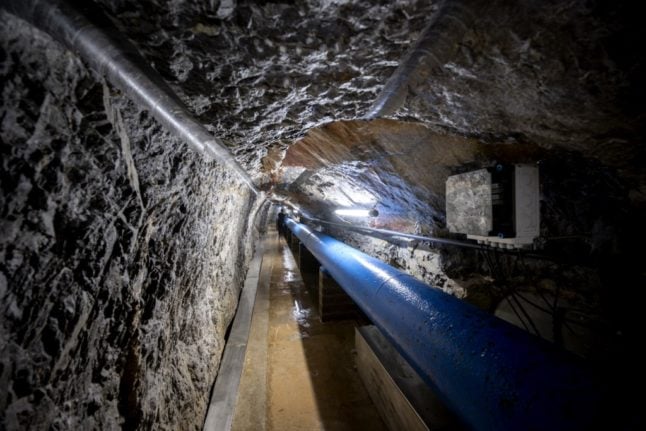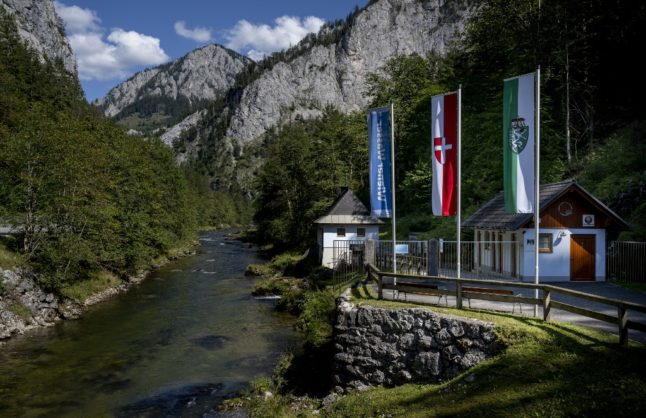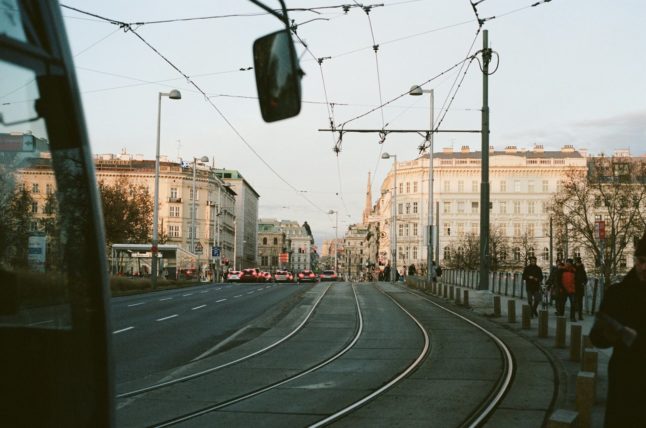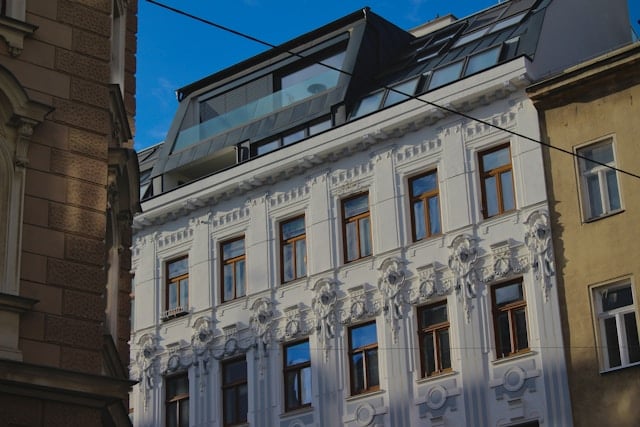A rarety in the EU, the two million inhabitants of Vienna get their tap water from dozens of springs — the main one some 655 metres (2,150 feet) above sea level.
It’s a serious subject in Vienna, where access to clean drinking water has since 2001 even been guaranteed in the constitution — a world first, according to the city’s website.
“Vienna is in the fortunate position that, as a city of millions, firstly, we have enough water and secondly, that it’s water of the best quality,” Jürgen Czernohorszky, Vienna councillor in charge of the environment, told AFP.
Czernohorszky this week reminded citizens that the water systems will turn 150 years old in 2023. In 1873, the first high spring line was opened. In celebration, the city now has new art in a municipal building on Linden Wienzeile:
Wiener Wasser ist legendär. Und wird heuer 150 Jahre alt! 1873 wurde die I. Hochquellenleitung eröffnet. Ein erstes Geburtstagsgeschenk gibt es von Frau Isa auf diesem Gemeindebau in der Linken Wienzeile. Ich finde: fantastisch! pic.twitter.com/3wm5sEIROn
— Jürgen Czernohorszky (@ChairNoHorseKey) March 13, 2023
READ ALSO: Everything you need to know about Austria’s world-class drinking water
The summer of 2022 was the hottest in Europe’s recorded history, as climate change drives ever longer heat spells and the drought parching the continent was the worst in at least 500 years.
Yet at the main Klaeffer spring feeding Vienna, some 150 kilometres (90 miles) outside the capital, the underground source bears water that is less than six degrees Celsius (43 degrees Fahrenheit) in temperature.
Some 10,000 litres (2,600 gallons) per second flow out from the Klaeffer spring alone, feeding a river named Salza that coils down a steep uninhabited valley.
The water system was set up about a century and a half ago under the Austro-Hungarian Empire to provide the city with fresh water to overcome diseases such as cholera.
READ ALSO: The best lakes and swimming spots in Austria
Today, the city’s sanctuary still encompasses 70 sources in untouched mountains south-west of the capital with a system of 130 aqueducts.

Thirty-one reservoirs in and around the city store the water, drawing officials from as far away as China to marvel at them, municipal water company Wiener Wasser spokeswoman Astrid Rompolt told AFP.
Each Viennese consumes around 130 litres of running water per day for some 30 euro cents ($0.30) — 15 cents cheaper than the same amount in Paris.
In Vienna, there is also enough to feed fountains, swimming pools, 1,300 drinking water fountains and even 175 mist showers that allow passers-by to cool off in the light spray.
READ ALSO: What makes Vienna the ‘most liveable city’ and where can it improve?
The growing city plans to renovate 30 kilometres of pipeline per year to prepare for increasingly hot summers expected as the impacts of climate change intensify.




 Please whitelist us to continue reading.
Please whitelist us to continue reading.
Member comments